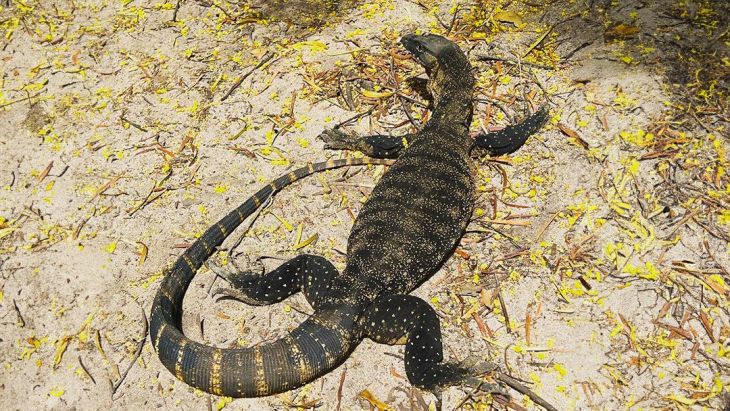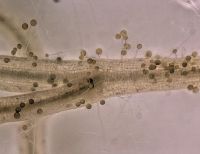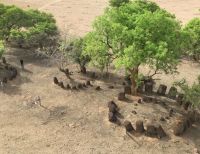A study led by the University of Cambridge has found that heath goannas - a species of giant, scavenging lizard - act as natural clean-up crews by clearing maggot-ridden animal carcasses from the landscape.
This reduces the emergence of blowflies, which attack sheep by laying eggs on their backsides that hatch into flesh-eating maggots. The disease, known as ‘fly strike’, costs the Australian sheep farming industry an estimated $280 million a year.
This study was carried out at 18 sites across the Marna Banggara Rewilding Project area on Australia’s southern Yorke Peninsula, where over 90% of the native mammals are now extinct.
The study found that heath goannas perform a superior blowfly control service to introduced European mammals, including red foxes and cats, which are displacing them.
The researchers say that boosting populations of native large reptiles like heath goannas is vital in restoring Australia’s ecosystem and the services it supports.
“We found that Australia’s native scavengers like heath goannas are much more effective in removing blowflies from the landscape than invasive scavengers like European foxes and cats,” said Tom Jameson, a PhD researcher in the University of Cambridge’s Department of Zoology and first author of the report.
















